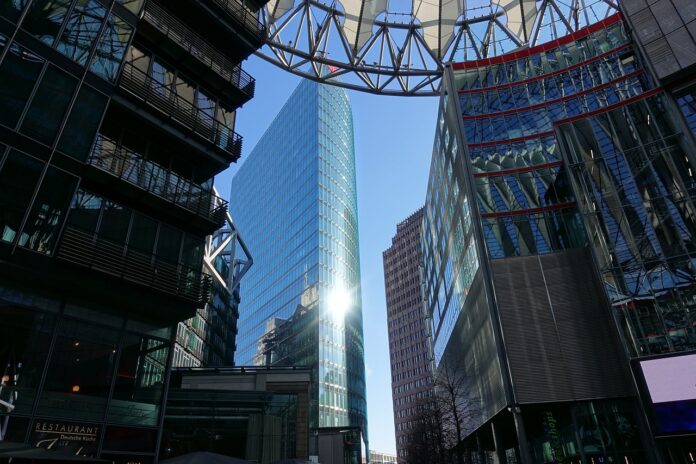When leasing a building for your business, you become its tenant.
This is common for small businesses that don’t have the capital to buy and need to be flexible with their expenses.
Leasing can be affordable and profitable for any size business, making more financial sense than purchasing.
Please read this article to learn what a commercial building for lease is and what it involves to make the best choice for yourself and your business moving forward.
Renting Commercial Versus Residential
There are times when people confuse commercial properties with rental properties.Â
Understanding the difference between the two is critical. There are several primary distinctions between a residential and a commercial building for rent.
* Residential real estate is mainly single-family homes and small apartments or duplexes.
* Businesses usually rent office space or retail space.
* Multifamily apartments are considered commercial property.
A commercial building for lease is used for a purpose that brings in revenue.
Commercial versus Residential Tenant
Businesses are usually commercial tenants. So it doesn’t matter if you’re a startup without enough capital to invest in your commercial real estate or an established company with lots of cash.
Most residential tenants are younger than 44 years old and live by themselves.
Reasons to Lease a Commercial Property
Commercial buildings provide an excellent way to generate long-term cash flow by renting out their spaces to tenants.
Commercial building owners can use their rental income to pay for property maintenance costs because having tenants keeps properties in good shape.
For businesses that want office spaces, renting is usually cheaper than buying.
Commercial buildings for lease allow new and established companies to start at a lower cost or grow by expanding into larger spaces without purchasing more land and paying additional expenses.
Different Types of Leases Renting Commercial Property
Commercial landlords usually use other leases to lease their buildings for rent. Here are some examples of these types of questions.
Full Service vs. Gross lease
A full-service or gross lease for a commercial establishment for rent:
* Tenants pay monthly base rents;
* The landlord has to pay for maintenance, insurance, and taxes.
* There’s a higher cost for commercial rentals.
A full-service lease may include a provision limiting how much the landlord pays out to a certain amount.
Because of this, both parties must study the contract closely to ensure they fully grasp its terms.
A Net Lease
Net leases require tenants to pay a share of the building’s operating expenses. There are different leases, each with its own set of costs for tenants.
Three are:
* Triple Net Leases: Triple Net Leases have tenants paying the entire cost of the building, including maintenance, taxes, and insurance.
* Double Net Lease (NN): A double net lease has the tenant and the landlord pay for their share of the expenses.
* A single net lease has tenants paying for property tax, not property insuÂrance or tax.
Net lease rates are much cheaper than gross lease rates for commercial buildings.
Net leases transfer some or all of the cost of operating and maintaining buildings from landlords to renters in exchange for a lower rent.
What are Some Ways to Lease Commercial Property?
It’s essential to do your research before renting a commercial space for your business. You want to know everything there is to know about your business, so you save time and money.
After doing that, it’ll be time to look for a suitable commercial building.
What are Your Needs?
Before looking at commercial buildings for lease, you must first determine your business needs from one.
Consider what you’ll put into the space and how many employees will work there.
After you’ve answered the question, you’ll be ready to begin looking for a commercial property for rent.
Finding Properties That Suit your Needs
If you want to rent an office space, say in Charlotte, NC you can contact a commercial real estate broker to help you find suitable properties.
A commercial leasing broker can assist you in defining what you’re looking for and filtering out the available options to get the best fit.
A commercial real estate agent can also assist you in finding the perfect space for your business.
They’ll be able to help you get the best price for your business, handle all the legal paperwork, maintain key contacts in your market, and so much more.
You Need to Negotiate the Best Deal Possible.
Once you’ve narrowed down your selection of potential commercial real estate options, having a commercial leasing agent review them and help you get the best deal is brilliant.
A commercial leasing agent can determine the pros and cons and help you choose.
Take Care of Your Now-Leased Property
Once you’ve rented out your commercial property and found commercial tenants, maintaining the space and the tenant–landlord relationship is essential.
You may encounter some maintenance and repairs that you’ll have to deal with.
You’ll also need to check the property regularly for any potential hazards, including fire, smoke, carbon monoxide, etc., and its general condition.
A clause about communication, the time required for inspections, and other factors related to the tenancy-at-will relationship can help.
Get Professional Guidance from Someone Who Knows
An experienced commercial real estate agent is an excellent person to have on your side when buying or selling property.
You’ll need their help when you’ve just leased a commercial real estate property for the first time.
A commercial leasing agent can assist you with everything from negotiating the terms of your rental agreement to finding a suitable property for your business.






















